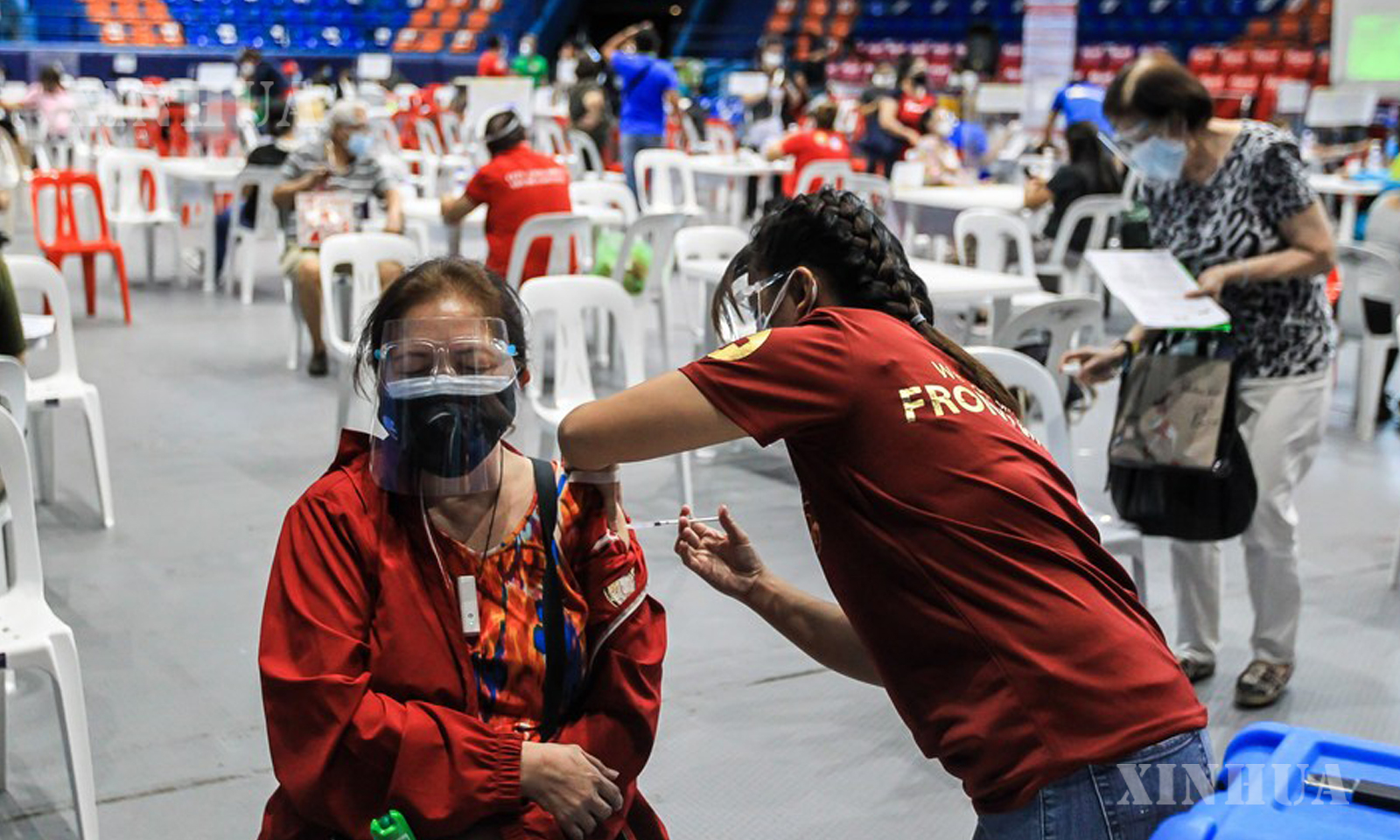ASEAN
ကိုဗစ်-၁၉ ကပ်ရောဂါက အရှေ့တောင်အာရှဒေသရှိ ပြည်သူ ၄.၇ သန်းအား အလွန်အမင်းဆင်းရဲနွမ်းပါးမှုအခြေအနေသို့ တွန်းပို့လျက်ရှိကြောင်း ADB ပြော

မနီလာ၊ မတ် ၁၇ ရက် (ဆင်ဟွာ)
ကိုဗစ်-၁၉ (COVID-19) ကပ်ရောဂါက ၂၀၂၁ ခုနှစ်တွင် အရှေ့တောင်အာရှရှိ ပြည်သူ ၄.၇ သန်းအား အလွန်အမင်း ဆင်းရဲနွမ်းပါးမှုအခြေအနေသို့ တွန်းပို့ခဲ့ကြောင်း၊ ကိုဗစ်ရောဂါမရှိစဉ် အခြေခံအခြေအနေနှင့် နှိုင်းယှဉ်ပါက အလုပ်အကိုင်ပေါင်း ၉.၃ သန်း ပျောက်ကွယ်သွားခဲ့ကြောင်း မတ် ၁၆ ရက်က ထုတ်ပြန်သော အာရှဖွံ့ဖြိုးတိုးတက်မှုဘဏ် (ADB) အစီရင်ခံစာအရ သိရသည်။
မနီလာအခြေစိုက်ဖြစ်သော ၎င်းဘဏ်၏အဆိုအရ အရှေ့တောင်အာရှဒေသသည် ကပ်ရောဂါဖြစ်ပွားမှု နှစ်နှစ်တာကာလအတွင်း ပြန်လည်နာလန်ထူလာစအခြေအနေဖြစ်နေကြောင်း၊ ဒေသတွင်းရှိ လူဦးရေ၏ ၆၀ ရာခိုင်နှုန်းနီးပါးမှာ ကာကွယ်ဆေးအပြည့်အဝထိုးထားပြီးဖြစ်သလို ယခုနှစ်တွင်လည်း ၅.၁ ရာခိုင်နှုန်းအထိ မြင့်တက်လာမည်ဟု ခန့်မှန်းထားကာ စီးပွားရေးများစွာကိုလည်း ပြန်ဖွင့်လှစ်နိုင်လိမ့်မည်ဖြစ်ကြောင်း သိရသည်။
၂၀၂၂ ခုနှစ်အတွက် ပိုမိုကောင်းမွန်သော အလားအလာများရှိနေသော်ငြားလည်း ဒေသတွင်းရှိ စီးပွားရေးအခြေအနေမှာ အထိအခိုက်မခံနိုင်ဖြစ်နေဆဲဖြစ်ပြီး အိမ်ထောင်စုများစွာမှာလည်း ကြီးမားသောဝင်ငွေဆုံးရှုံးမှုကို ဆက်လက်ကြုံတွေ့နေရဆဲဖြစ်ကြောင်း အစီရင်ခံစာက ဖော်ပြထားသည်။
“ကပ်ရောဂါကြောင့် အလုပ်လက်မဲ့ဖြစ်မှု ကျယ်ကျယ်ပြန့်ပြန့်ဖြစ်စေတာ၊ မညီမျှမှု ပိုဆိုးလာစေတာနဲ့ ဆင်းရဲနွမ်းပါးမှုအဆင့်တွေ မြင့်တက်လာစေတာ၊ အထူးသဖြင့် အရှေ့တောင်အာရှရှိ အမျိုးသမီးတွေ၊ ငယ်ရွယ်တဲ့အလုပ်သမားတွေနဲ့ သက်ကြီးရွယ်အိုတွေကြားမှာပေါ့” ဟု ADB ဥက္ကဋ္ဌ Masatsugu Asakaw က ပြောခဲ့သည်။
ယင်းအနက် ထိခိုက်မှုအရှိဆုံးမှာ ကျွမ်းကျင်မှုမရှိသော အလုပ်သမားများနှင့် လက်လီရောင်းချမှုနှင့် တရားဝင်မဟုတ်သော စီးပွားရေးတွင် အလုပ်လုပ်ကိုင်နေသူများအပြင် ဒစ်ဂျစ်တယ်စနစ်မရှိသေးသော အသေးစားစီးပွားရေးလုပ်ငန်းများလည်း ပါဝင်သည်။ ဒေသတွင်းရှိ အစိုးရများအား ဆန်းသစ်၍ စိမ်းလန်းသော အခြေခံအဆောက်အအုံများတွင် ရင်းနှီးမြှုပ်နှံရန်နှင့် စီးပွားရေးတိုးတက်မှုကို စွမ်းအားပြန်လည်ဖြည့်တင်းရန် နည်းပညာဆိုင်ရာ ဆန်းသစ်တီထွင်မှုများကို လက်ခံကျင့်သုံးရန် Asakawa က တိုက်တွန်းခဲ့သည်။
ကျန်းမာရေးစနစ်များ ပြုစုစောင့်ရှောက်မှုများ လွှဲပြောင်းပေးအပ်ရေး အထောက်အကူဖြစ်စေရန်၊ ရောဂါစောင့်ကြပ်ကြည့်ရှုခြင်း တိုးတက်မှုရှိစေရန်နှင့် အနာဂတ်တွင်ဖြစ်ပေါ်လာမည့် ကပ်ရောဂါများကို တုံ့ပြန်ရန် အရင်းအမြစ်များ ပိုမိုခွဲဝေသတ်မှတ်ပေးရေးအတွက် အစိုးရများအား အစီရင်ခံစာတွင် တောင်းဆိုထားသလို အကယ်၍ ဒေသတွင်း GDP ၏ ၅ ရာခိုင်နှုန်းခန့်မှာ ဒေသတွင်းရှိ ကျန်းမာရေးအတွက် သုံးစွဲမည်ဆိုပါက စီးပွားရေးတိုးတက်မှုမှာ ၁.၅ ရာခိုင်နှုန်း ပွိုင့်များ မြင့်တက်လာနိုင်ကြောင်း မှတ်ချက်ပြုထားကြောင်း သိရသည်။
ထို့ပြင် နိုင်ငံများအနေဖြင့် စီးပွားရေးလုပ်ငန်းစဉ်များရိုရှင်းရေး၊ ကုန်သွယ်မှု အတားအဆီးများ လျှော့ချခြင်းနှင့် နည်းပညာအသစ်များ အသုံးပြုရန် စီးပွားရေးလုပ်ငန်းငယ်များ တွန်းအားပေးပေးရေး စသဖြင့် ယှဉ်ပြိုင်မှုနှင့် ကုန်ထုတ်လုပ်မှု မြှင့်တင်ရန် ဖွဲ့စည်းပုံ ပြုပြင်ပြောင်းလဲမှုများကို လိုက်နာရေးအတွက်လည်း အစီရင်ခံစာက အကြံပြုထားသည်။
အစိုးရများအနေဖြင့်လည်း ပြည်သူများ၏ လိုငွေပြမှုနှင့် ကြွေးမြီများကို လျှော့ချရန် ငွေကြေးဆိုင်ရာ အတိုင်းအဆကို ထိန်းသိမ်းသင့်ပြီး ထိရောက်မှုမြှင့်တင်ရန်နှင့် အခွန်အခြေခံ ကျယ်ပြန့်မှုရှိစေရန် အခွန်စီမံခန့်ခွဲမှုကို ခေတ်နှင့်လျော်ညီမှုရှိစေရန် ဆောင်ရွက်သင့်ကြောင်း အစီရင်ခံစာက ဖြည့်စွက်ဖော်ပြထားသည်။
တစ်ချိန်တည်းမှာပင် ကိုဗစ်-၁၉ ရောဂါ မျိုးဗီဇကွဲဗိုင်းရပ်စ်များ ပေါ်ထွက်လာခြင်း၊ ကမ္ဘာလုံးဆိုင်ရာ အတိုးနှုန်းများ တင်းကျပ်လာခြင်း၊ ထောက်ပံ့မှုကွင်းဆက်များ အနှောင့်အယှက်ဖြစ်စေခြင်းနှင့် လူသုံးကုန် ဈေးနှုန်းများနှင့် ငွေကြေးဖောင်းပွမှုများ မြင့်မားလာခြင်း စသည့် ဒေသတွင်း မြောက်များစွာသော စိန်ခေါ်မှုများကိုလည်း သတိပေးထားကြောင်း သိရသည်။ (Xinhua)
………………………………………………
(English Version)
COVID-19 pandemic pushes 4.7 mln more people in Southeast Asia into extreme poverty: ADB report
Source: Xinhua| 2022-03-16 13:08:30|Editor: huaxia
MANILA, March 16 (Xinhua) — The COVID-19 pandemic pushed 4.7 million people in Southeast Asia into extreme poverty in 2021, as 9.3 million jobs disappeared, compared with a baseline no-COVID scenario, said an Asian Development Bank (ADB) report released on Wednesday.
According to the Manila-based bank, the region is beginning to recover from the two-year pandemic, forecast to pick up to 5.1 percent this year as almost 60 percent of its population become fully vaccinated, enabling many economies to reopen.
Despite more favorable prognoses for 2022, the report said that the economic situation in the region remains fragile, and many households continue to experience huge income losses.
“The pandemic has led to widespread unemployment, worsening inequality, and rising poverty levels, especially among women, younger workers, and the elderly in Southeast Asia,” ADB President Masatsugu Asakawa said.
Among the most affected are unskilled workers and those working in retail and the informal economy, as well as small businesses without a digital presence. Asakawa encouraged governments in the region to invest in innovative, green infrastructure and adopt technological innovations to reinvigorate economic growth.
The report called governments to allocate more resources to help health systems deliver care, improve disease surveillance, and respond to future pandemics, noting that economic growth could rise by 1.5 percentage points if health spending in the region reaches about 5 percent of GDP.
It also recommended that countries pursue structural reforms to boost competitiveness and productivity, such as simplifying business procedures, reducing trade barriers, and encouraging small enterprises to adopt new technologies.
It added that governments should maintain fiscal prudence to reduce public deficits and debts, and modernize tax administration to enhance efficiency and broaden the tax base.
Meanwhile, the reported warns of multiple challenges in the region, namely emerging COVID-19 variants, tightening global interest rates, supply chain disruptions, and higher commodity prices and inflation. ■
Photo : A woman receives a dose of COVID-19 vaccine inside a sports arena turned into a vaccination site in San Juan City, the Philippines on April 1, 2021. (Xinhua/Rouelle Umali)






